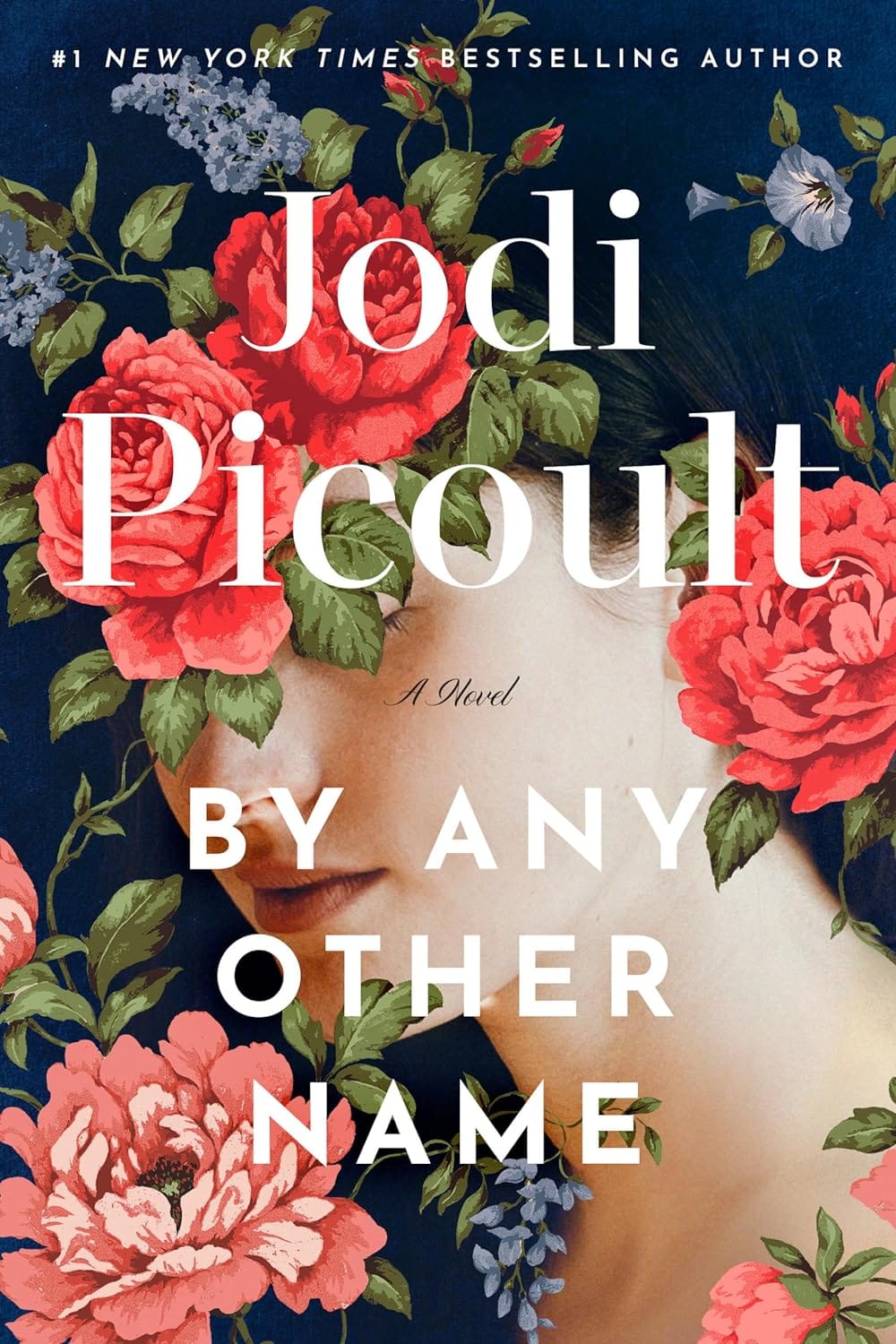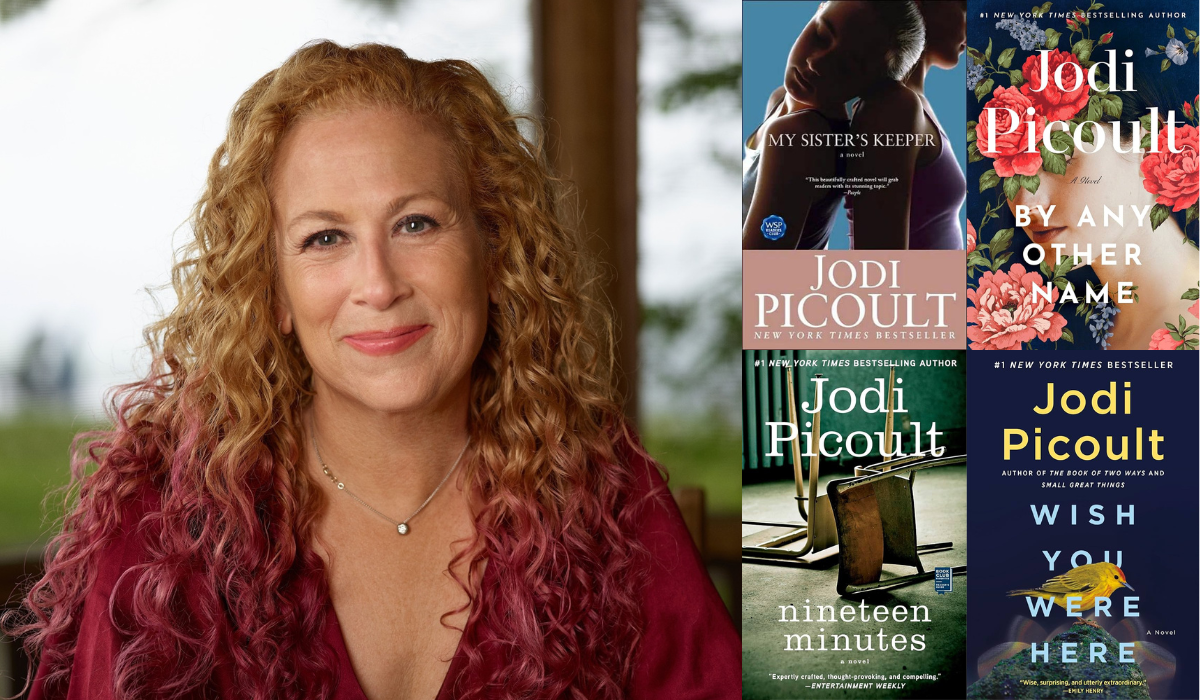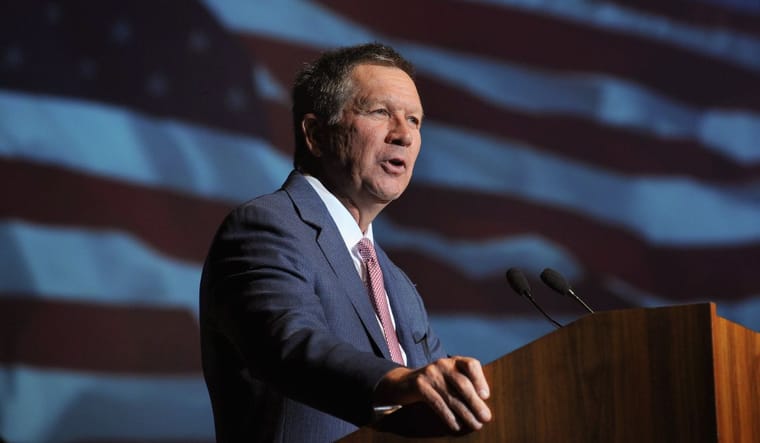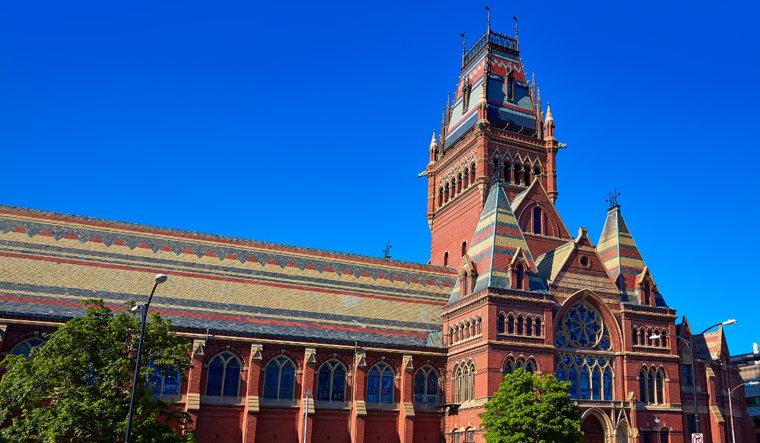Bestselling Novelist Jodi Picoult on the Power of Good Storytelling to Help Us Rise Above the Noise
The experience of reading a Jodi Picoult novel—the surge of being swept away in both story and enlightenment—is powerful. With My Sister's Keeper, Picoult's global 2004 hit, millions learned about the harrowing toll a child's illness can take on a family. Years later, fans clutched her bestseller Nineteen Minutes and gained insight into the heartbreak caused by violence. When fiction books are often considered a means of pure escapism, Picoult proves they can be unexpected teachers. "In many ways, fiction is a kinder, gentler way to make people think about issues that they would rather not think about," she tells The Sunday Paper.
With more than 40 million copies of her novels sold, Picoult has a way of making the toughest of subjects accessible, which is needed in today's climate when staying both informed and steady is a feat. We spoke with the author about her new novel and why she believes fiction—and any book—can stretch our souls, even in the most challenging times.
A CONVERSATION WITH JODI PICOULT
You cover tough subjects in your novels, from school violence to racism to family loss. Why is fiction an essential means for you to explore these topics?
We are living in a really difficult time. We've gotten to a point where, at least I know for me, it is hard to watch the news. Many people feel it can be hard to read nonfiction and hear the news about contentious, divisive topics. Fiction is super magical. It almost has this little trapdoor where you start reading a novel thinking you are being whisked away and entertained, and by the end, you have wound up learning something about the world and yourself—all without knowing that you were being educated. In many ways, fiction is a kinder, gentler way to make people think about issues that they really would rather not think about.
Your forthcoming novel includes how women are overlooked and stigmatized. You tell this through the lens of two women characters, one living in modern times and another living 400 years ago. Why did you want to touch on women's voices and rights?
That is the whole point of the book: Four hundred years ago, women were not credited for their minds, and 400 years later, nowadays, we are still not being given credit for our minds. Often, we are being reduced to body parts, as if the only thing that's most important about us is the ability to have a child. That is a reductive, dangerous, and regressive place in the world. One of the beauties of this book is when we think of Tudor times, we're not thinking of a very enlightened world, [yet] there are so many parallels still between that world and the world today. It is really important to remember that women make up more than half the world. We must know that historically, women have been written out of history, and often not given credit by the men who have held the pen. Today, men are still holding the pen. We need to stop saying, 'It's okay' or 'It's not so bad' or 'It's only going to be four more years.'
More than a year ago, you were at rehearsals for The Book Thief, a story you adapted into a stage musical, when you read a news headline that some of your books were being banned. Tell us about that experience.
It was really on the nose! I was in a rehearsal room, watching actors who were playing Nazis burn a prop book and I just kept thinking, What's happening, exactly? During this time, my books were being banned in Martin County, Florida, where 92 books were pulled at the request of one parent, and 20 of those 92 books were mine. The reason my books were pulled was because they are apparently porn, and this included books that do not even have a kiss in them. The parent admitted they did not read the books. It was ridiculous and shocking, and almost a cognitive dissonance to see that playing out fictionally in front of me on stage, and to know that it was happening in our country with book bans. This is, again, turning back the pages of history.
How can we all take part in fighting for book and the freedom to read?
There are far more people in this country who want to protect the freedom to read than people who want to ban books. It [was reported that] 11 individuals are responsible for over 60 percent of the book bans in this country [according to analysis by The Washington Post]. So, it is a matter of being louder than these very loud individuals. So, what does that mean? That means if you can, run for school board and vote against book banning. It means starting a banned book club. It means using your social media to support books.
This is all incredibly dangerous because there is a very small group of individuals who are trying to decide how kids think and how they form opinions about difficult subjects. There is nothing wrong with a parent deciding what their child should read. That's the job of a parent. But there's something really wrong with that same parent making the decision for anyone else's child. People who have banned books claim that they are protecting the kids from concepts that they think are dangerous to them. But they're actually taking away resources from kids who use fiction and books to create tools to help them make sense of a very complex world. Studies show that kids who feel marginalized feel less alone when they see themselves represented in literature. When you take those books away from kids, and when you remove bits of history in books because you don't like how it reflects on the past of America, you don't get rid of that history; all you do is take away resources people need in a very difficult world.
In this tough world, how do you rise above the noise?
I am very fortunate to have a career where I get to create scenarios and characters whose lives I have ultimate control over. So, in one way, that's so helpful to me when I feel like I have no control. I also go back to the lessons I learned during COVID, when we were in lockdown, which is to remember what's most important. We all lost a lot during that time. But I still found joy playing Foursquare in my driveway with my kids. There are these little nuggets of gold in whatever you're navigating and whatever is a hardship.
I also love to take moments to be in the quiet. I broke my arm recently, but when I don't have a broken arm, I swim every day. And I do it because I escape the whole time. I listen to audiobooks while I swim and, again, I escape. That's another wonderful thing about books is that they take you away.
What's a great novel you recommend we all pick up this summer?
A book I recommend all the time is a sleeper book called Molly Malloy and the Angel of Death. It's a short book about 'Death,' a character who has a job. It's crazy and so weird, but it's all about what it means to be human—the naughtiness, the gnarliness, and the beauty of it all.

Jodi Picoult is the #1 NYT bestselling author of 29 novels, including landmark titles My Sister's Keeper, Mad Honey,nWish You Were Here, A Spark of Light, and Small Great Things. Her new novel, By Any Other Name, will be on sale August 20. Learn more at jodipicoult.com
Please note that we may receive affiliate commissions from the sales of linked products.



